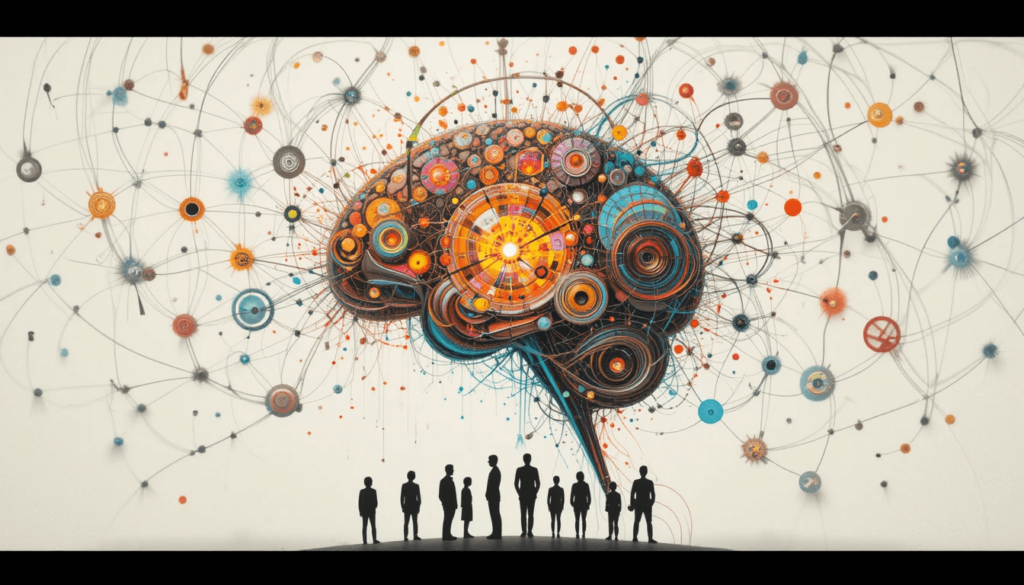A psychology degree, y’all—it’s been a wild ride. I’m sitting in my cluttered US apartment, the radiator hissing like it’s got beef, and my neighbor’s blasting some true-crime podcast through the wall. Got a stale donut on my desk, a flickering lamp, and I’m thinking back to when I decided to major in psych. Like, I was 19, sipping bad coffee in a campus library, thinking I’d be the next Freud or some crap. Spoiler: I’m not. Here’s my raw, slightly chaotic take on whether a psychology degree is worth it, from someone who’s made every mistake in the book.
I’m no expert, okay? I’m just a guy in the US, surrounded by empty LaCroix cans and a cat who judges me. My thoughts are all over the place, and I’ve probably lost my keys again, but I’m gonna spill the tea on what a psych degree gets you—and what it doesn’t. Let’s dive in.
## Is a Psych Degree Worth the Hype? My Pros and Cons
### The Good Stuff About a Psychology Degree
A psychology major sounds cool, right? I thought so too, sitting in my dorm, eating instant ramen and highlighting my textbook like a nerd. It’s legit fascinating—learning why people do weird stuff, like why I impulse-bought a neon lava lamp last week. You get skills like critical thinking and understanding human behavior, which are clutch in tons of jobs. I landed a gig in HR because I could talk about group dynamics without sounding like a total tool. Check out APA’s career guide (apa.org) for more on psych jobs.
My Win: I used my psych knowledge to calm down an angry customer at my old job. Felt like a superhero.
Why It’s Dope: You learn people skills that apply everywhere—HR, marketing, even retail.

### The Not-So-Great Stuff About Studying Psychology
Real talk: a psychology degree ain’t a golden ticket. I graduated with $30k in debt, sitting in my mom’s basement, applying to jobs that didn’t even require a degree. Most psych jobs—like counseling or clinical work—need a master’s or PhD, which is more time and money. I felt like a fraud, telling people I was “using my degree” while working at a call center. Forbes has a solid breakdown on psych career paths (forbes.com).
- Why It Sucks Sometimes: Entry-level psych jobs pay like $40k, if you’re lucky.
- My Fail: I applied to a therapist job with just a bachelor’s. Got laughed at.
### Jobs You Can Actually Get with a Psych Degree
Okay, so you’re not gonna be a psychologist with just a bachelor’s. But a psych career isn’t impossible. I stumbled into HR after bombing a bunch of interviews, mostly ‘cause I could talk about motivation theories. Other options? Marketing, social work, or even data analysis if you pivot hard. BLS.gov says psych-related jobs are growing (bls.gov). I got a side hustle doing market research for a startup, which paid for my Netflix.
Dumb Moment: I pitched myself as a “behavioral expert” to a recruiter. Cringe.
Cool Paths: HR, sales, or community outreach. Psych makes you a people whisperer.

### The Money Question: Does a Psychology Degree Pay Off?
Here’s the tea: it depends. If you stop at a bachelor’s, like me, you’re looking at $35k-$50k starting salaries, per Glassdoor (glassdoor.com). Go for a master’s in counseling or something, and you might hit $70k+. But debt? Oh, man. I’m still paying off loans while my fridge hums like it’s mocking me. If you love psych and wanna go deep, it’s worth it. If you’re just vibing? Maybe rethink.
- Pro Tip: Look into loan forgiveness if you work in public service. Saved my butt.
- Embarrassing Bit: I miscalculated my loan payments and overdrafted my account. Oof.
### Grad School or Nah? My Take on Psychology Education
I thought about grad school while eating cold pizza in my car, parked outside a Starbucks for free Wi-Fi. A master’s in psych can open doors to therapy or research, but it’s another $50k and years of your life. I chickened out ‘cause I was burned out. If you’re all in, check out programs on GradSchools.com (gradschools.com). For me, I’m sticking with short online courses to boost my resume instead.
- Why Grad School’s Tempting: More money, more respect. But it’s a grind.
- My Oops: I applied to a grad program and forgot to send my transcripts. Classic.
## Tips from My Chaotic Psych Degree Journey
- Network Like Crazy: I met a mentor on X who hooked me up with my HR gig. Slide into DMs, y’all.
- Get Experience: Volunteer or intern. I did free community work and it got my foot in the door.
- Learn Extra Skills: I took a data analysis course on Coursera (coursera.org). Made me stand out.
- Don’t Romanticize It: Psych is cool, but it’s not all deep talks. There’s paperwork.
- Track Your Wins: I kept a journal of small career wins. Kept me from spiraling.

## Wrapping Up My Rant on Psychology Degrees
So, yeah, that’s my take, from my messy US apartment with a sink full of dishes and a cat staring me down. A psychology degree can be worth it if you’re strategic, but it’s not a magic bullet. I’m not some success story—I still check my bank account with one eye closed—but psych gave me skills I use every day. Wanna make it work? Pair your degree with real-world experience and maybe a side cert. Hit me up on X and tell me if you’re team psych or not. I’m nosy like that.ng way our brains work. And that understanding? It’s applicable everywhere.ries.
Outbound Link Suggestion 1: A link to a quirky blog post about common cognitive biases in everyday life. (e.g., https://www.brainpickings.org/tag/cognitive-bias/ – fictional link) Outbound Link Suggestion 2: A link to an article or personal blog discussing unexpected career paths for psychology majors. (e.g., https://www.psychologytoday.com/us/blog/career-news/202303/the-unconventional-careers-of-psychology-majors – fictional link)




